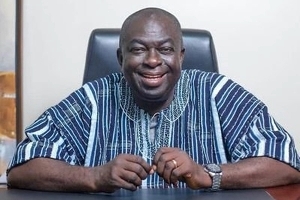General News of Thursday, 27 May 1999
Source: --
A book on Cocoa development in West Africa launched
Accra (Greater Accra) 27 May '99
Mr J. H. Owusu-Acheampong, Minister of Food and Agriculture said in Accra on Wednesday that the Cocoa sector still accounts for a very substantial proportion of the economy and must be given the maximum support to sustain the level of growth.
"The Cocoa industry has so influenced Ghana's economy that many Ghanaians still believe that it is the cocoa industry that can salvage the economy," the Minister said during the launch of a book on cocoa in Accra.
Written by an 80-year old Agricultural Economist, Mr Benjamin Acquaah, the book "Cocoa Development In West Africa - The Early Period With Particular Reference to Ghana," was published by the Ghana Universities Press.
The 187-page book traces the geographical distribution, importance and historical development of cocoa as well as the research into the crop and its diseases.
Mr Owusu-Acheampong said government, mindful of the great influence of cocoa on the economy, has been highly supportive of the industry.
He cited the shift of government policy from subsidy to paying higher producer prices to the farmer and said the new policy will make the industry more profitable to farmers.
"But, I must admit that with the withdrawal of subsidies things appear not to be going well with our cocoa farmers of late.
"There is every evidence that in many cocoa growing areas, farmers are not applying the recommended agronomy practices and this is affecting production adversely," the Minister who is also a cocoa farmer said.
Ghana, once the world's largest producer of cocoa, a position it held for 60 years, experienced a slump in production from a peak of 400,000 tonnes in the 1960s to the lowest level of 150,000 tonnes in the 1980s.
The current level is about 300,000 tonnes.
Cocoa also provides 35 per cent of the country's export earnings and accounts for 12 per cent of the gross domestic product (GDP).
It has directly provided employment to about 14 per cent of the working force.
"Every effort will, therefore, be made to increase cocoa farmers' productivity, maintain cocoa quality and ensure adequate return to investment in cocoa production," Mr Owusu Acheampong said.
The Minister commended the author for documenting his knowledge and rich experience in the cocoa industry for posterity.
He said many advanced countries today have used scholarly ideas, in creating great economic and industrial empires.
"If only five per cent of our educated and experienced members of society are able to put their thoughts on paper, I have no doubt that Ghana's economic and historical development would have gone further," he said.
Mr Acquaah who said, Ghana is yet to exploit the full features of cocoa urged the Cocoa Board to pump more resources into research.
"It is about time we encourage well seasoned agronomists, researchers, economists, agriculturists and more literate people to join the ranks of the cocoa sector."
Mr Acquaah, who joined the Ministry of Agriculture in 1954 as a senior technical officer mentioned at least 18 uses of cocoa including, achohol, floor tiles and beverage drink.
He said as other countries are working hard to explore the full uses of the product, Ghana should strengthen its research units and protect the quality of the crop in order not to be left out.
Cocoa, with the botanical name Theobroma (food of the Gods) also known as Cacao has been in existence for over 4,000 years and has been a commodity of world trade for over 400 years.
According to the book, Cocoa arrived in Europe after the discovery of the New World and through trade spread to Asia, the West Indian Islands and to Africa.
At least about 25 million cedis worth of the book priced at 20,000 cedis was sold at the launch.












